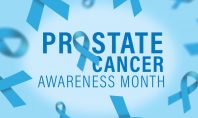Vaccines: The Best Shot for Eliminating Disease
The recent outbreak of measles in certain areas of the country has parents and community members on edge. It has also put pediatric vaccinations—and their resisters—in the hot seat.
What the news headlines don’t say, however, is the compliance rate for pediatric vaccinations is more than 92%, says Jeffrey Jahre, M.D., Senior Vice President of Medical and Academic Affairs at St. Luke’s University Health Network.
“There are pockets of resistance, but it’s not a national phenomenon,” Jahre says.
There are nearly two dozen vaccines given to children within the first two years of life—several are second and third doses against a certain disease. Jahre explains that “vaccine hesitators” aren’t necessarily questioning whether the vaccines work. It’s more likely they have concerns with the scheduling and safety of them.
“Because vaccines are so successful, they’ve been victims of their own success,” Jahre says. “People who have not experienced polio, which has virtually been eliminated [because of vaccines], only focus on the vaccine and potentially negative aspects.”
In 1998 a study published in The Lancet medical journal suggested a link between pediatric vaccinations and autism. The paper was retracted—the information was both inaccurate and fraudulent—but the damage was done, Jahre says.
Since that paper was retracted, there have been more than 45 well-designed scientific studies supporting the safety of vaccines and confirming no link with autism, a common misconception among vaccine hesitators.
Jahre understands why some parents and caregivers may be vaccine-hesitant and encourage civil conversation between them and people who follow the vaccine schedule.
“Parents want to protect their children and keep them safe,” he says. “When people have vaccine hesitancy it isn’t because they’re ignorant. It’s because they have interpreted certain information that has allowed them to make a bad decision, but you have to respect them for making that decision. It has to be from a vantage point of mutual respect.”
He emphasizes the fact that coming in with a “bulldozer effect” demanding children be vaccinated won’t have the same effect as if trusted health care providers in the community help educate patients and families.
Interestingly, Jahre is more concerned with the vaccination rate in adults, which in many cases, is less than 50%.
For example, a third of adults over 65—the recommended age for many adult vaccinations—have not had the pneumococcal vaccine, which protects against pneumonia, meningitis, and sepsis. And about three-quarters of adults are not adequately immune to tetanus, a vaccine that should be given every 10 years. He goes on: Two-thirds of susceptible adults have not had the shingles vaccine.
“The general belief is that vaccines are only for children and that’s primarily an education and access issue,” he says. “We need to make sure adults come in regularly for wellness visits.”
Not only do vaccines protect against potentially deadly diseases, they protect individuals—often infants and the elderly—who are unable to be vaccinated due to compromised immune systems. This effect is called “herd immunity.”
“Getting the measles vaccination, for example, protects children who are vulnerable and unable to get vaccinated,” Jahre says, pointing out that the measles vaccine doesn’t work if given to a child under 9 months of age. “Vaccines also protect adults who may have lost some of their protection. Childhood diseases are often far worse in adults, and they’re much more vulnerable to complications.”
Jahre goes on: “We always say prevention is far better than a cure. Many cases don’t have a cure. Why not utilize that protection?”
Is Your Child Up-to-Date?
According to the Centers for Disease Control and Prevention, children who are not medically exempt should be vaccinated against these diseases by age 2.
- Hepatitis B
- Rotavirus
- Diphtheria, Tetanus, Acellular Pertussis (Whooping Cough)
- Haemophilus influenza type b (Hib)
- Pneumococcal conjucate
- Inactivated poliovirus
- Influenza
- Measles, Mumps, Rubella
- Varicella (Chicken pox)
- Hepatitis A
- Meningococcal
- Human papillomavirus
- Pneumococcal polysaccharide


















